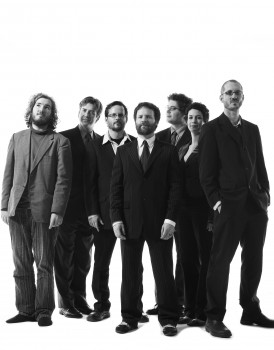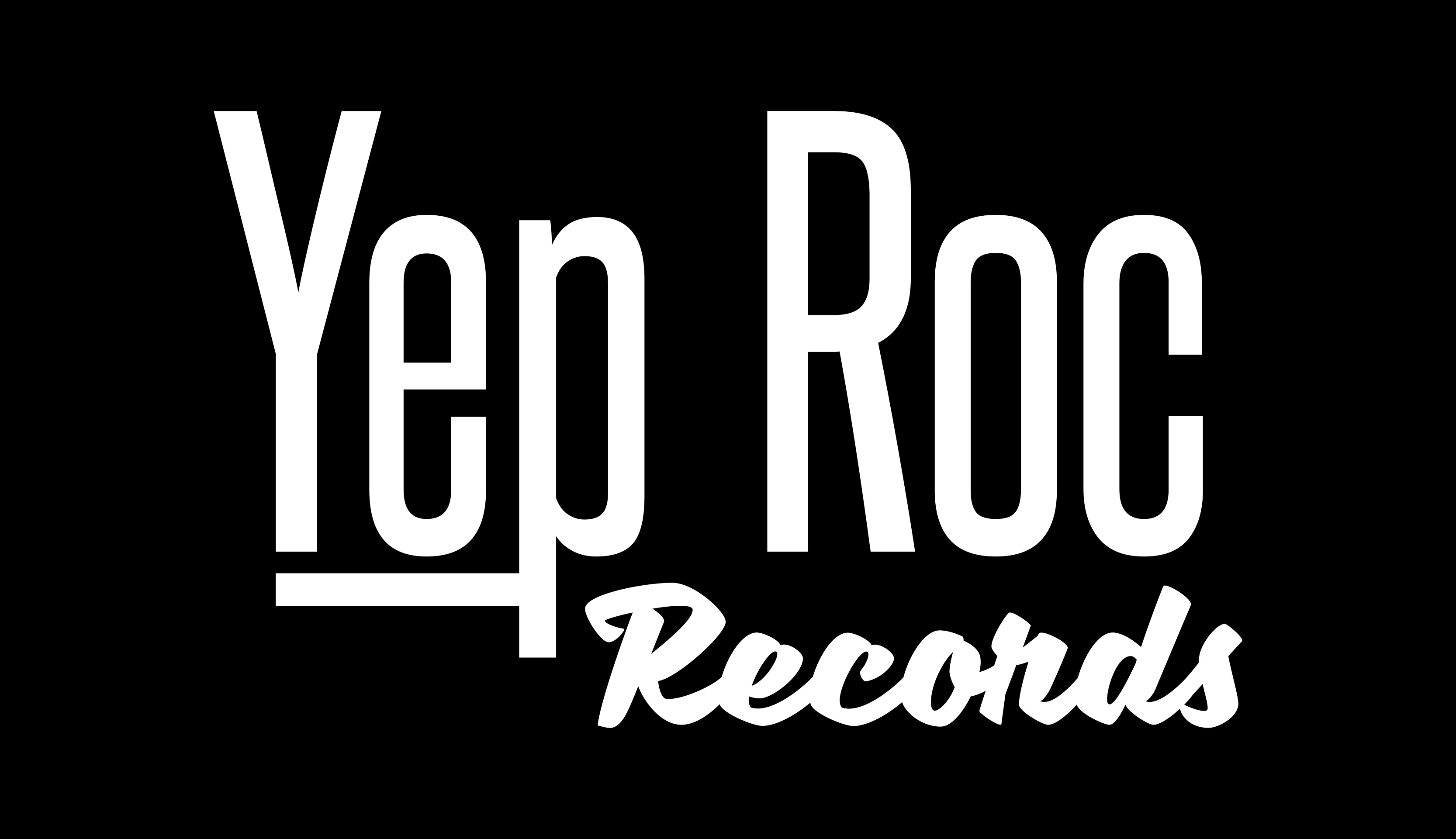
.........................................................
Sometimes a band makes an album that’s, well… let’s just say, a bit confusing. A group of songs that seem to be, as Churchill put it, a riddle wrapped in a mystery, inside an enigma; its artistic impetus unclear to its fans, the critics and certainly to the music consuming public-at-large. This is the case with Toronto ensemble Rock Plaza Central’s Are We Not Horses. During the weeks and months that the album was being written the band thought songwriter and singer Chris Eaton was drunk, high, most-of-the-way crazy or a harrowing combination of all three-and to this day they’re still not exactly sure of the exact alchemy. At this point in postmodernism it’s probably a bit of a cliche to say that while the genesis of a piece of art is blurry, its message can still be clear. The following is an account of how one Rock Plaza Central band member became acquainted with this notion and how robotic horses taught humans a little bit about truth, love and the meaning of life. Banjoist Rob Carson remembers it like this… One evening Chris [singer/guitarist Chris Eaton] said to me, “I think the next record is going to be all about robot horses.” “Robot horses?” I replied. “Robot horses. In fact, six-legged robot horses. But the problem, of course, is that they think they’re real horses.” Blink. Chris went on, “You remember the war between the angels and the humans from the last record, right?” As a matter of fact, I didn’t. And furthermore, even to this day, it seems that no one in the band quite understands what the hell Chris is talking about when he mentions the war. And he mentions it a lot. Our first record was a largely improvised affair at the House of Miracles with Andy Magoffin – it was only the third time we had ever played together as a band, with most of the songs arranged totally on the fly and recorded in a single take. When all the dust had settled, Chris reflected on what had made its way onto tape and he seemed to have decided that a few of the songs fit together to tell the story of an apocalyptic war between angels and human beings. But to be honest, I still don’t quite see where he got this. In case you’re wondering – and by this point you probably are – Chris wasn’t seriously into Rush or King Crimson or Emerson Lake and Palmer when he was a teenager. Nor was he raised by religious zealots, so far as I know. Nor did he drop a prodigious amount of acid in university. But to be fair, I’ve never asked him about any of these things, so I could be mistaken. It would sure explain a hell of a lot if it turned out that he was some sort of closeted prog-rock-fan acid-burnout Jesus-freak. “Well, now I’m imagining that during the war, the humans rode on these six-legged robotic horses. But now that the war is over, though, the robot horses have to face the consequences of what they’ve done in overthrowing the angels. They figure out that the humans lied to them, tricking them into thinking that they were real horses. And then the robot horses get worried that maybe they fought on the wrong side in the war. But even more than that, they’re completely baffled by the fact that all of a sudden they have no idea what they even are, since they’ve only ever known what it means to be horses. And they’re not horses.” “Because they’re robots.” “Exactly.” True to his word, for the next few months, Chris’s new songs all focused on the subject of robot horses. In fact, they were all written from the point of view of the robot horses, if you can believe it. We persisted with our strategy of never rehearsing – and to this day we have never had an actual band rehearsal (unless drinking counts as a rehearsal) – and as a result, we would always learn these new songs from him live before an unsuspecting audience, most often in the front room at the Tranzac club in Toronto. Chris lowers his voice and leans into the mic: “Here’s a new song. It’s another song about horses.” Fiona rolls her eyes. John grins, unconvincingly feigning enthusiasm. Blake squints and listens intently for signals, either from the band or, more likely, from outer space. Scott can’t resist adding, “And of course what Chris means by this is ROBOT horses.” Then Don chimes in matter-of-factly, “Six-legged robot horses.” Is Scott being derisive? Is he annoyed? Is he absolutely mortified? I can’t tell if the band is amused or angry that we’re about to add another song about the damn robot horses to our increasingly robohippocentric repertoire. Maybe this is why Don drinks so much at shows. And before we know it, we’re one song deeper into a concept album that we barely understand. I find myself thinking: are we writing a rock opera on the fly? Did we ever discuss this? Did anyone agree to this? Chrissy, can you hear me? Can you feel me near you? As the months pass, Chris takes to introducing the songs at shows with long rambling monologues about the angels and the war and the robot horses and their unlikely identity crises. Very often, I see the band is listening to him even more intently than the audience, desperate to learn what the hell is going on. On other occasions, however, we all just give up and saunter over to the bar, leaving Chris to wax prosaic all on his own. I don’t know if Chris got nervous about the whole “concept album” idea at some point, but as the months wore on, the new songs that he would bring in to shows at the Tranzac seemed less and less concerned with robot horses. And once the time came around that we started to think about heading back into the studio to make another record (this time at the Gas Station on the Toronto Island with Dale Morningstar), he arrived with a pile of new songs that seemed to steer clear of horses and robots entirely. Fiona seemed relieved. Maybe John did too. But I was a little bit sad to see them go. The shiny little clipcloppy buggers were really starting to grow on me. We made the record and we fought a lot. And then we mixed the record and we fought a lot. And then we sequenced the record and we fought a lot. And then we kept fighting for a few more weeks because we were just so damn used to it by then that it was starting to feel like home. But I guess that’s how these things go. When all was said and done and the dust had settled, I had a long careful listen to the record and was amazed to discover – perhaps against our wills, perhaps against our wishes, perhaps even against our better judgments – that the whole damn record was about robot horses after all. Even the songs that had seemed to make no mention of the horses in isolation came to life in the context of the album and somehow managed to fit in with the more obvious horse songs. I’m not sure there’s a single narrative binding this all together or not – we’re certainly not setting out to tell a straight ahead story here, I’m sure you’ll agree – but I’d suggest that if you stare at the jagged shards of em>Are We Not Horses long enough, there are any number of worthwhile stories that you might find cowering in the shadows. Maybe this is a rock opera after all, just a cubist rock opera. I am worried that I am having delusions of coherence. I suspect that this is what it feels like to be Chris.
–Rob Carson, February 2007
